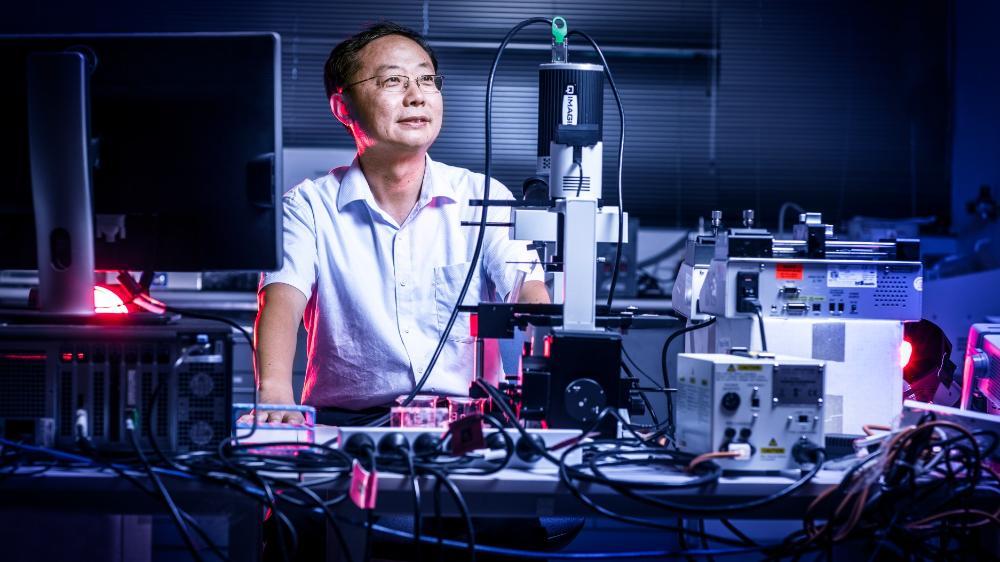August 31, 2022
UOW led projects awarded $1.2 million in ARC Linkage Project grants
Value of industry and and cross institution collaborations recognised
Three University of Wollongong (UOW) projects across creative arts, green hydrogen, and mining sciences have been granted $1.2 million under the Australian Research Council (ARC) Linkage Projects grants.
Linkage Projects promote national and international research partnerships between researchers and business, industry, community organisations and other publicly funded research agencies. In addition to the ARC funding, the projects are supported by significant cash and in-kind contributions from collaborating partner organisations.
UOW Deputy Vice-Chancellor (Research and Innovation) Professor David Currow welcomed the ARC announcement.
“The awarding of Linkage Projects grants is a testament to UOW’s strong collaborations with industry and with other researchers across Australia and around the world.”
“Time and time again we see that collaboration brings better outcomes. The projects funded in this round represent innovative partnerships striving for ground-breaking solutions to some very pressing real-world challenges.”
UOW academics Associate Professor Brian Yecies, Associate Professor Jun Shen, Dr Joanne Law, Dr Agnieszka Golda, Dr Jongkil Kim, Dr Grant Ellmer, Dr Zeyang Zhou will collaborate with a team drawn across Universities and industry bodies, including the National Association for the Visual Arts (NAVA), Australian Network for Art & Technology (ANAT), CSIRO Data61, Copyright Agency and Australian Copyright Council to explore ways to empower Australia’s visual arts via creative blockchain opportunities.
Associate Professor Yecies said the project investigates the provision of a blockchain-based solution for protecting the intellectual property and provenance of visual art and ways to empower its economic, cultural, and social value and benefits.
“By exploring innovative non-fungible token (NFT) opportunities in a global cyber security context, we will co-design a user-friendly and compliant tool for expanding the creation and movement of art on existing virtual galleries and smart contract-enabled platforms.”
“Building on interdisciplinary synergies between creative and IT practices, we will interrogate the efficacy, risks and governance surrounding this global technology, and produce vital new knowledge for engaging with risks and opportunities in the digital economy.”
In partnership with green hydrogen company HYSATA, chief investigators Professor Gerhard Swiegers and Professor Gordon Wallace of the Australian Institute for Innovative Materials, will further research into high efficiency electrochemical cells.
Professor Swiegers said that the project will study a recently developed, energy efficient ‘capillary-fed’ electrochemical cell architecture in the facilitation of various electro-energy and electro-synthetic transformations.
“The new cell architecture will be examined as a hydrogen-oxygen fuel cell and as a cell for extracting pure hydrogen from a 5-10 per cent mixture of hydrogen in methane. The work seeks to improve upon the electrochemical performance of the best commercial and academic cells of such types.”
“In increasing the efficiency with which renewable electricity can be converted into renewable hydrogen and back, this project will support the national priority of net-zero carbon emissions by 2050.”
Senior Professors Weihua Li and Haiping Du from the Faculty of Engineering and Information Sciences in collaboration with Komatsu Australia and M&S Engineering will expand the search for innovative metamaterial magnetorheological technology for mining machines.
“Hard-rock mining machines have been identified as the next generation mining technology, which will finally replace the traditional drill and blast method to increase productivity and mitigate dangerous working conditions,” Professor Li said.
“This project aims to develop innovative metamaterial magnetorheological elastomer joints for a typical hard-rock mining machine to improve the mining efficiency by reducing vibration.”
“The findings and outcomes of this research will advance the knowledge and practice of hard-rock mining machines in Australia. The success of this project will significantly increase mining productivity and reduce human injury.”
Professor Brian Monaghan will contribute to a project led by the University of Newcastle to develop a process to separate phosphorus from steelmaking slag while the slag is still molten to improve the competitiveness of Australian iron ores.
Associate Professor Marlene Longbottom will contribute to a project led by Central Queensland University that will establish the process to scale up a social and emotional learning program, Skills for Life (SFL), with Aboriginal and Torres Strait Islander students in Grades 7-9 across Australia's top end.
